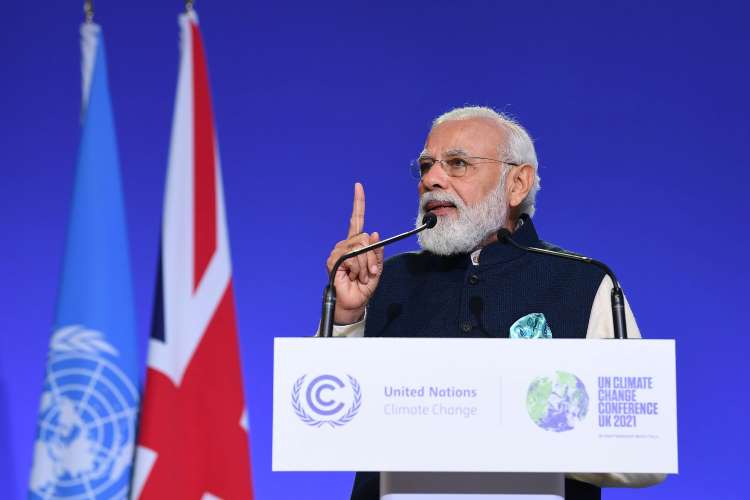
India will meet the net zero emissions target by 2070, Prime Minister Narendra Modi announced at the global climate change summit. Modi also unveiled at Cop26 India’s plan to decarbonise its economy in the next 50 years. With India’s announcement on Monday, all major economies have now laid out their net zero commitment. India is the second-most populous country in the world after China with more than 1.3 billion people. It is also the third largest emitter of heat-trapping greenhouse gases after China and the US.
The prime minister said India will produce half of its electricity from renewable sources by 2030, and promised to raise the country’s non-fossil power capacity to 500GW during the period. This means a cut in India’s carbon emissions by 1 billion tonne by 2030. He also promised a 45% cut in the Indian economy’s carbon intensity by 2030.
READ I The global minimum tax: A great beginning despite inbuilt biases
Of the 191 nations participating in the summit, only 113 have improved on the commitments they made in Paris in 2015. China has pledged to achieve net zero by 2060, while the US and Europe have agreed on a 2050 deadline.
Climate change threat looms
The Intergovernmental Panel on Climate Change (IPCC) had recently warned that the rising temperature may have already disturbed the planet’s climate systems. The Paris Climate Agreement signed by 195 nations looks to limit rise in global average temperature to 1.5 degrees above the pre-industrial average to avert a climate change crisis that could have disastrous consequences for the planet. The average temperature has already risen by 1.1 degrees.
READ I WMO report issues dire climate change warning
India’s net zero deadline of 2070 is in line with the projections made by global experts. India is decades behind China and the developed world in terms of economic activity and energy use. More than two thirds of its power generation is by coal-based plants. While it has made great strides in the production of solar and wind energy, it needs technology and funds to send renewable energy into the power grid.
Till Modi made the announcement at Glasgow, India seemed not to accept the concept of to net zero. The official position was that it is against climate justice, one of the corner stones of Paris Climate Agreement. It took the position that developing countries are made to pay a price for the reckless consumption by the developed countries.
Modi termed previous commitments made by rich nations to provide climate finance as hollow. He demanded the developed world to release the promised $1 trillion climate finance to developing countries immediately.
Anil Nair is Founder and Editor, Policy Circle.


